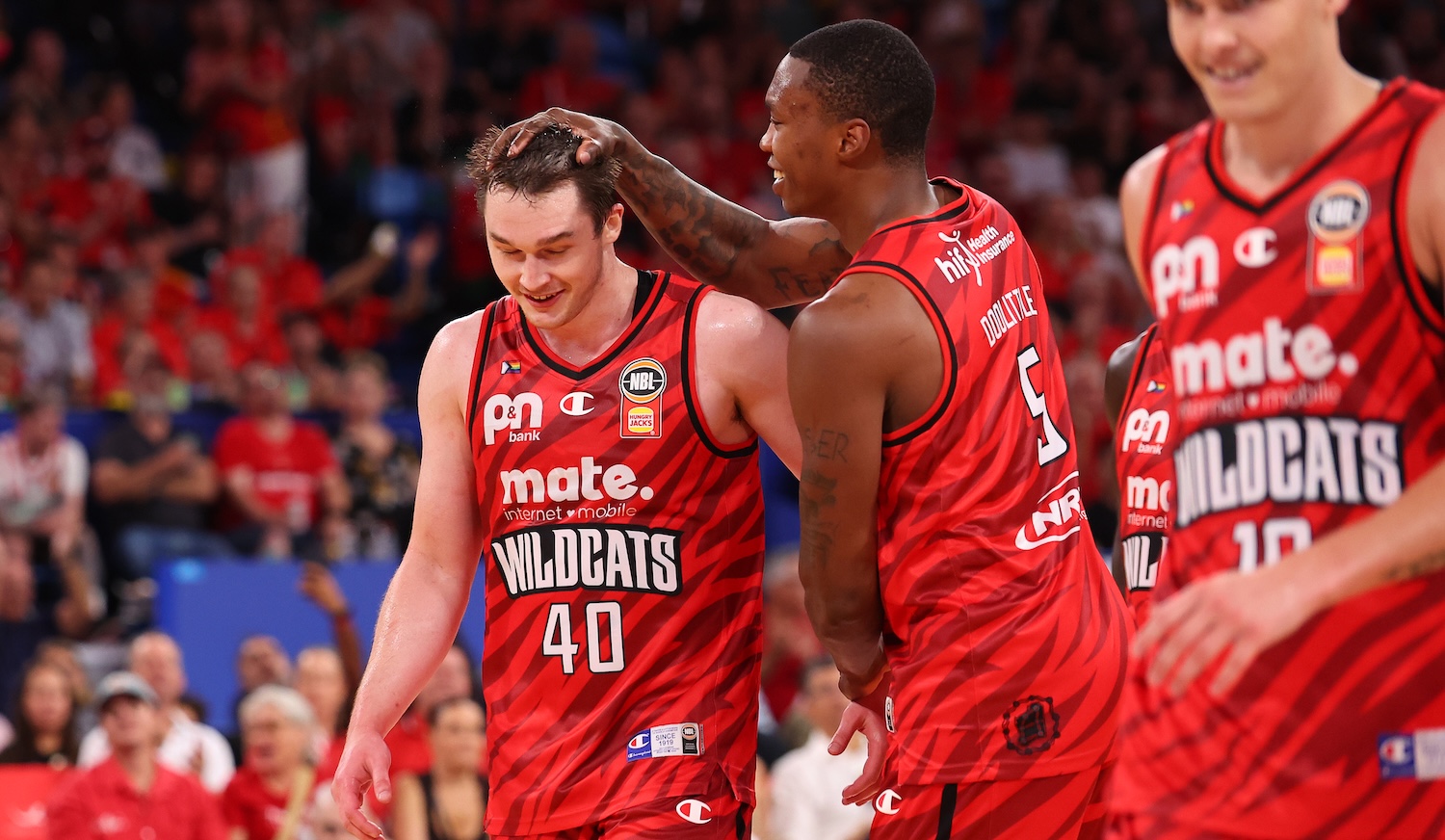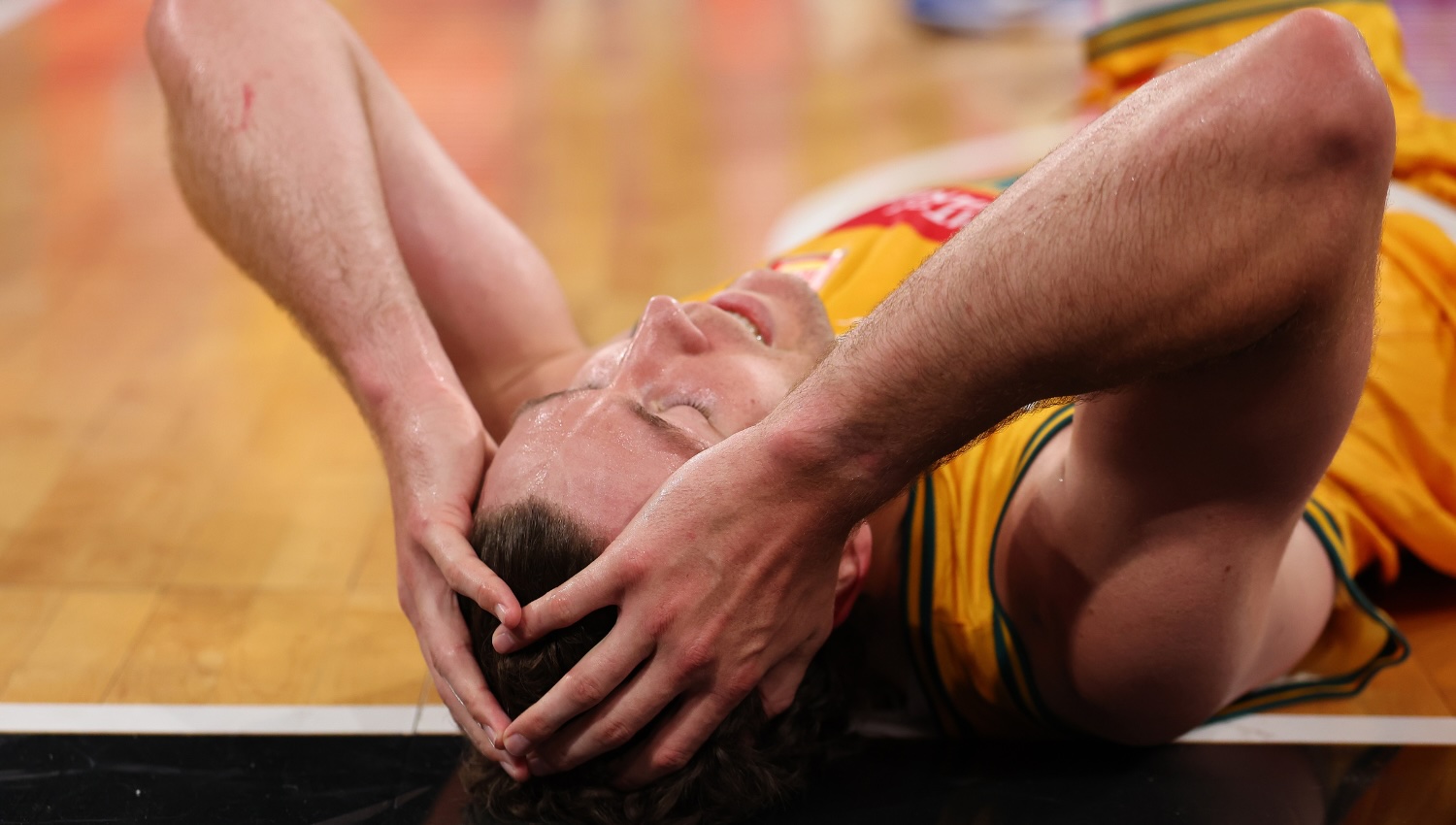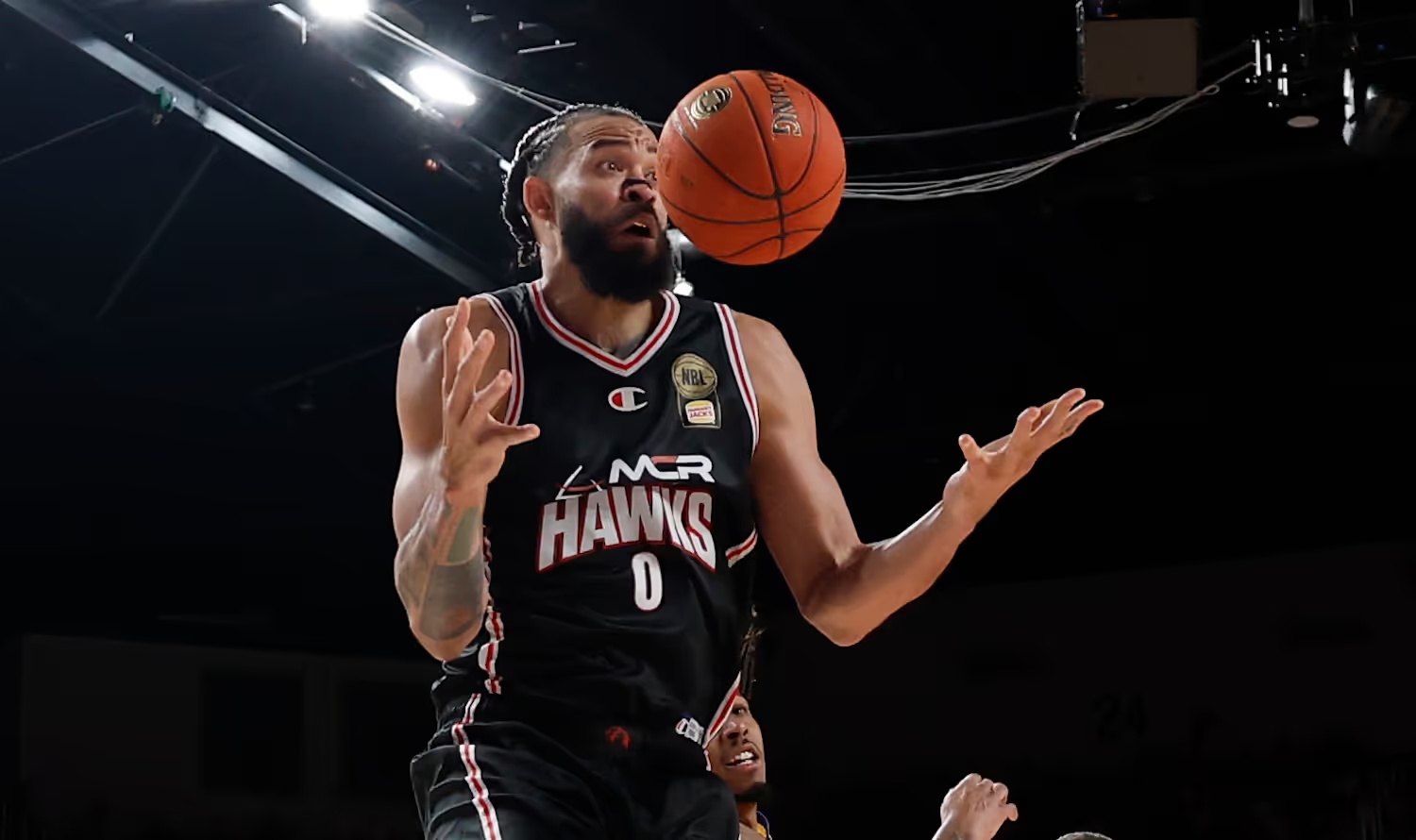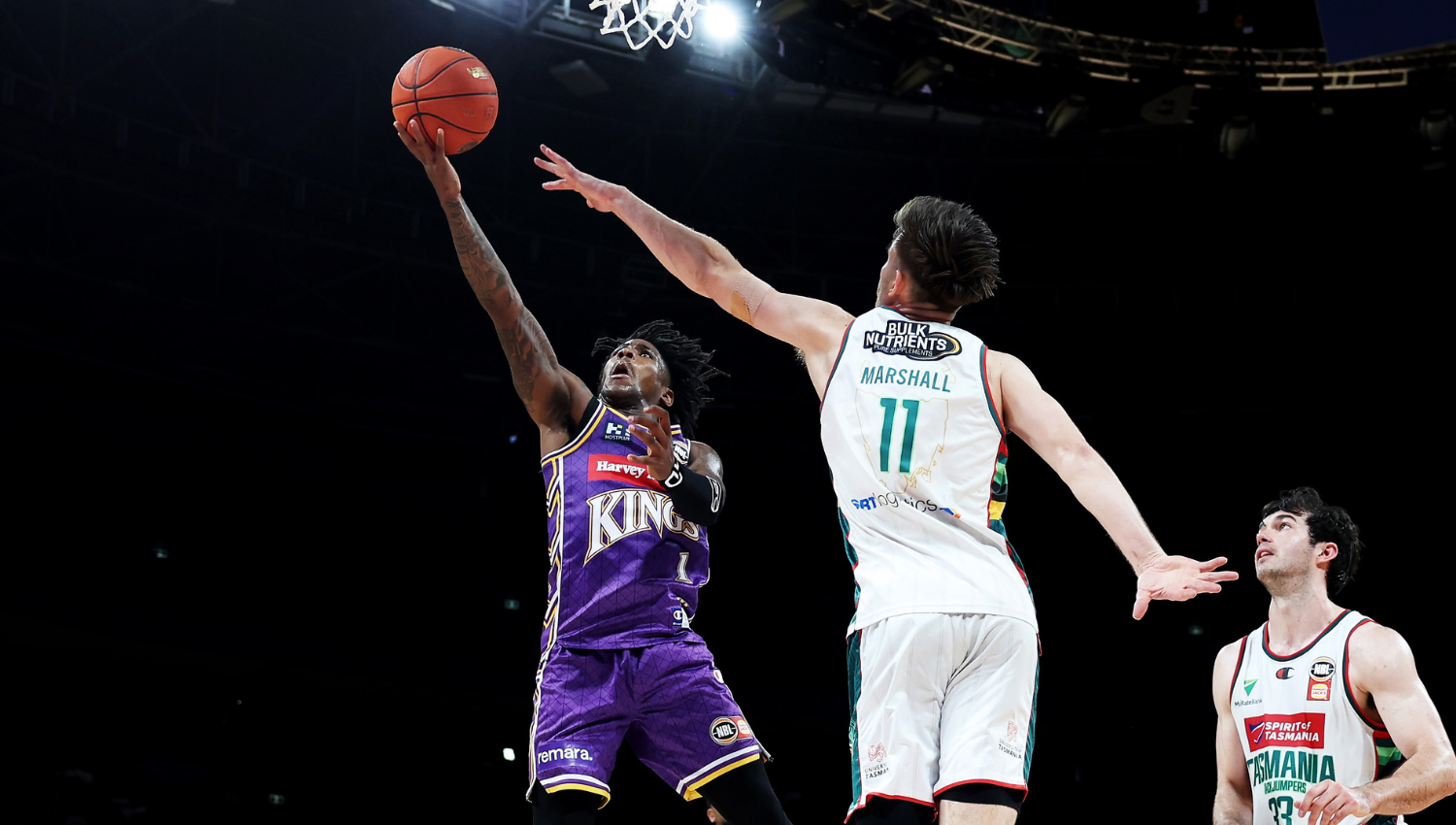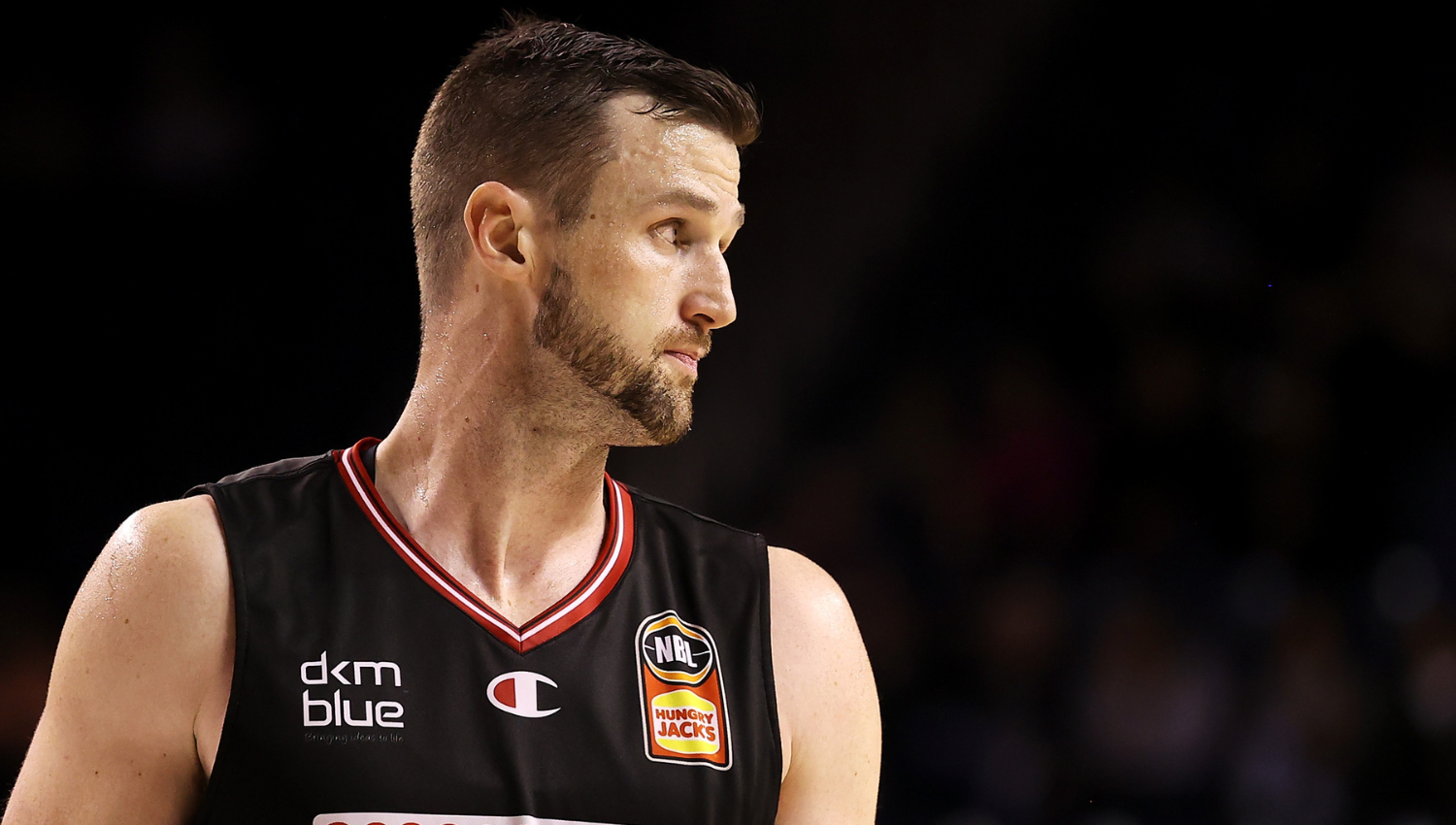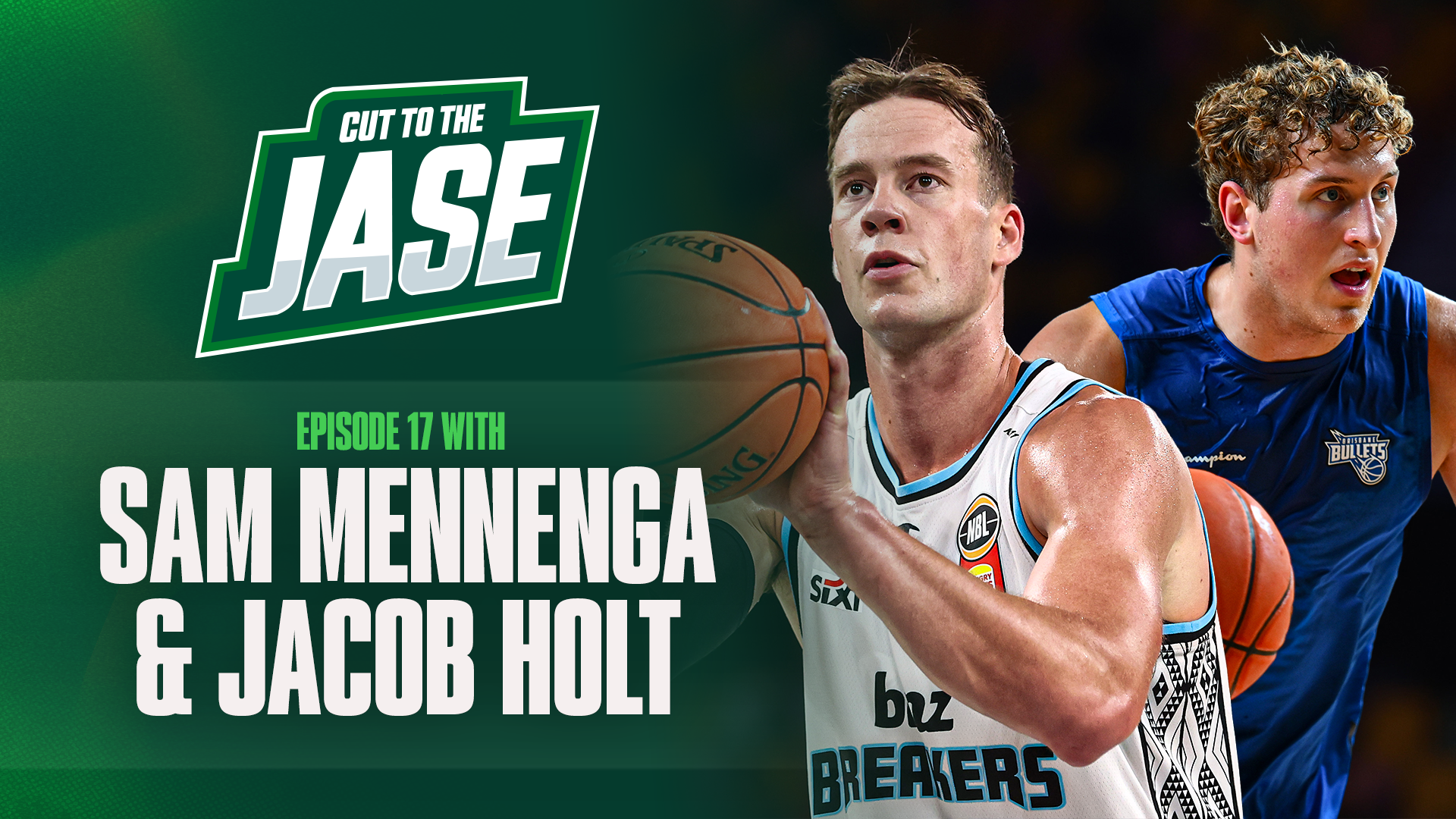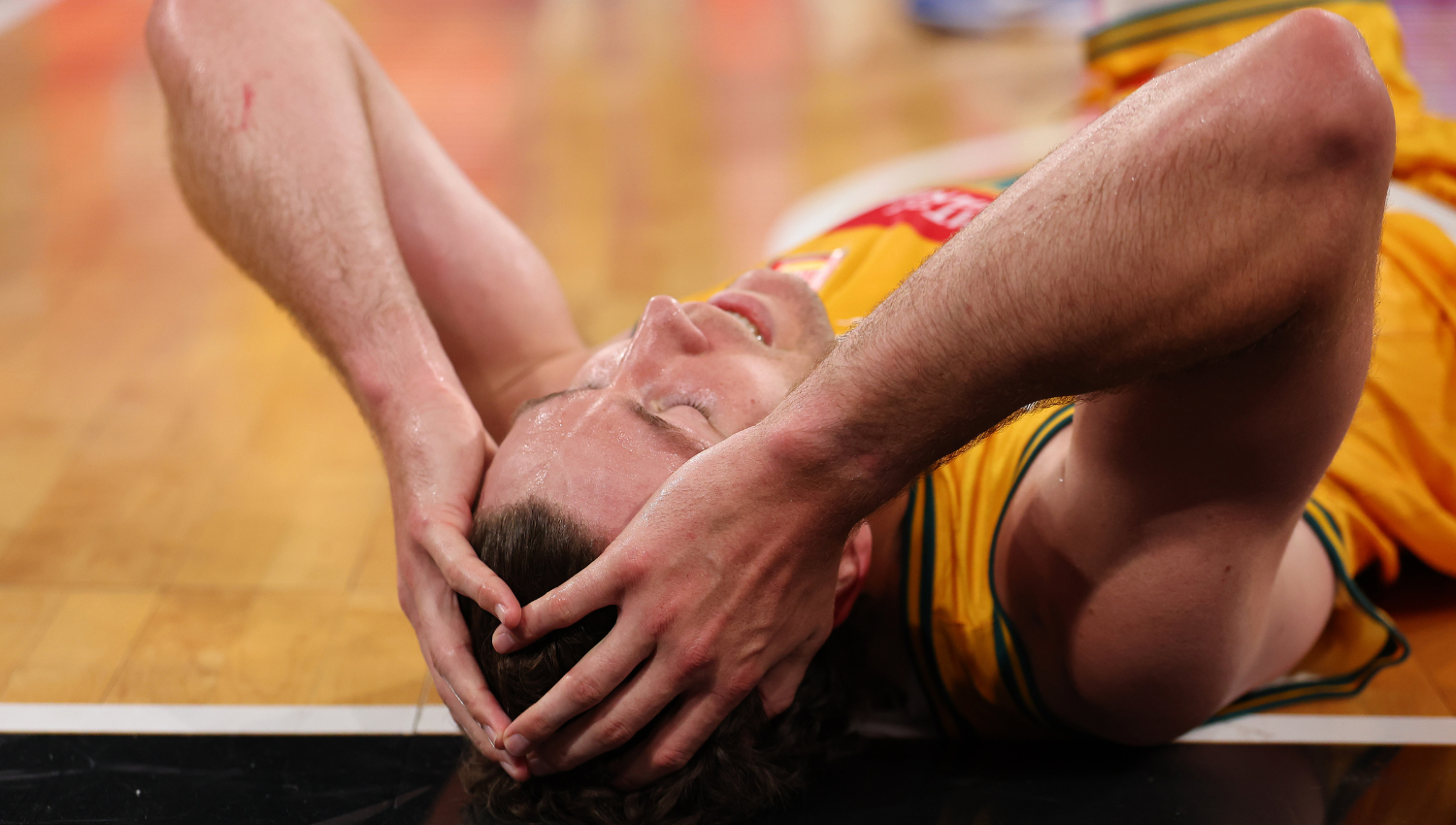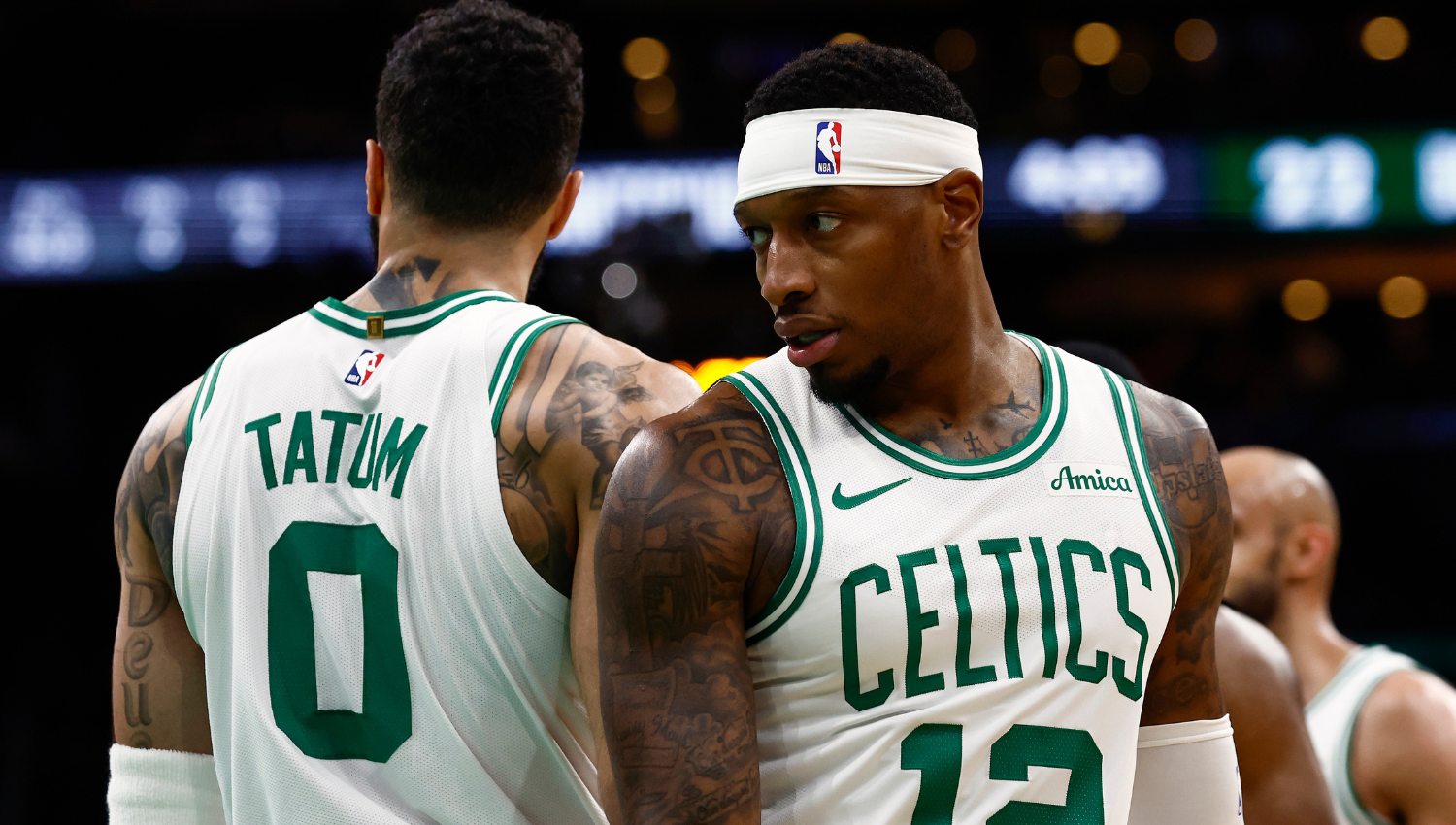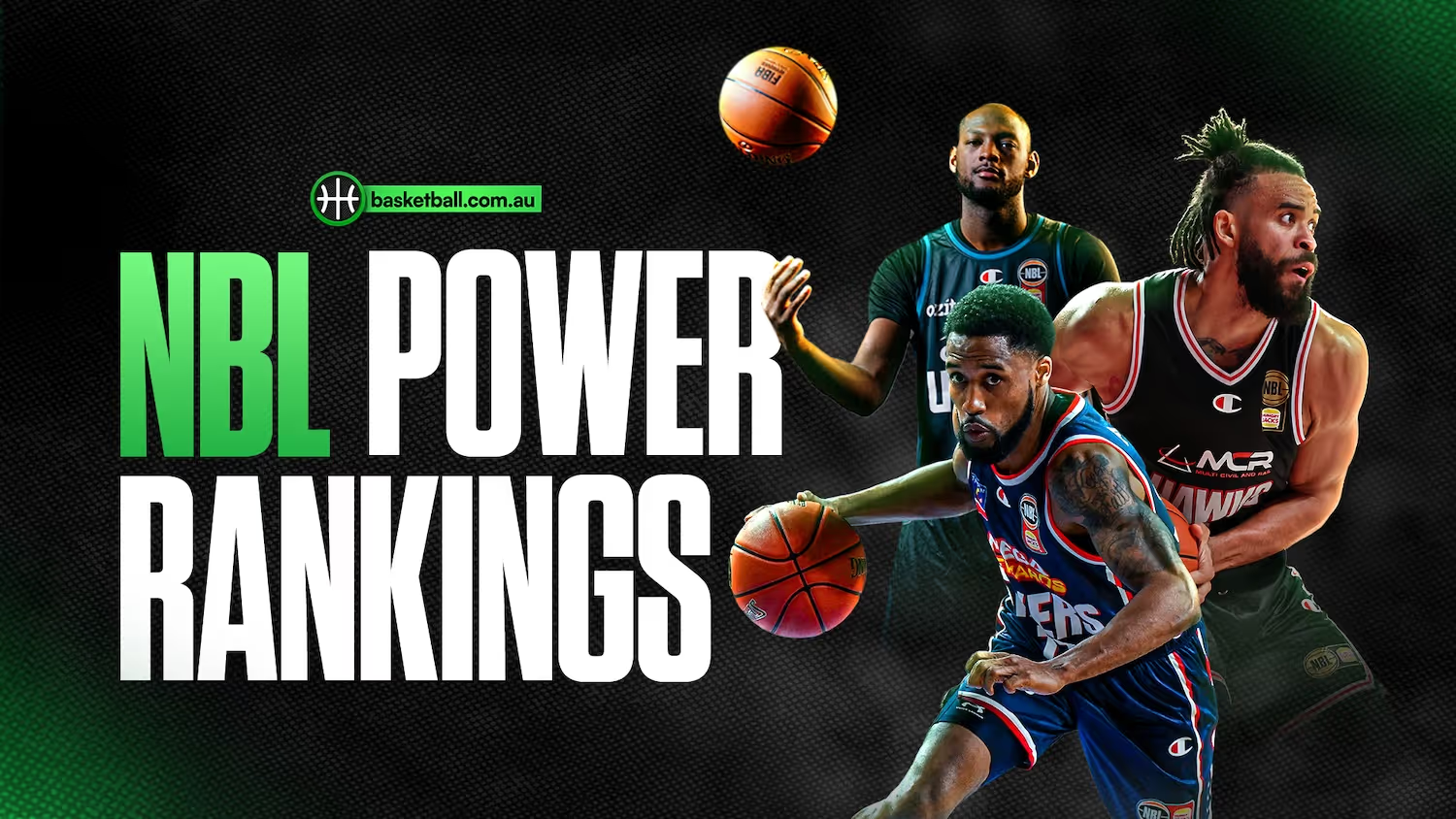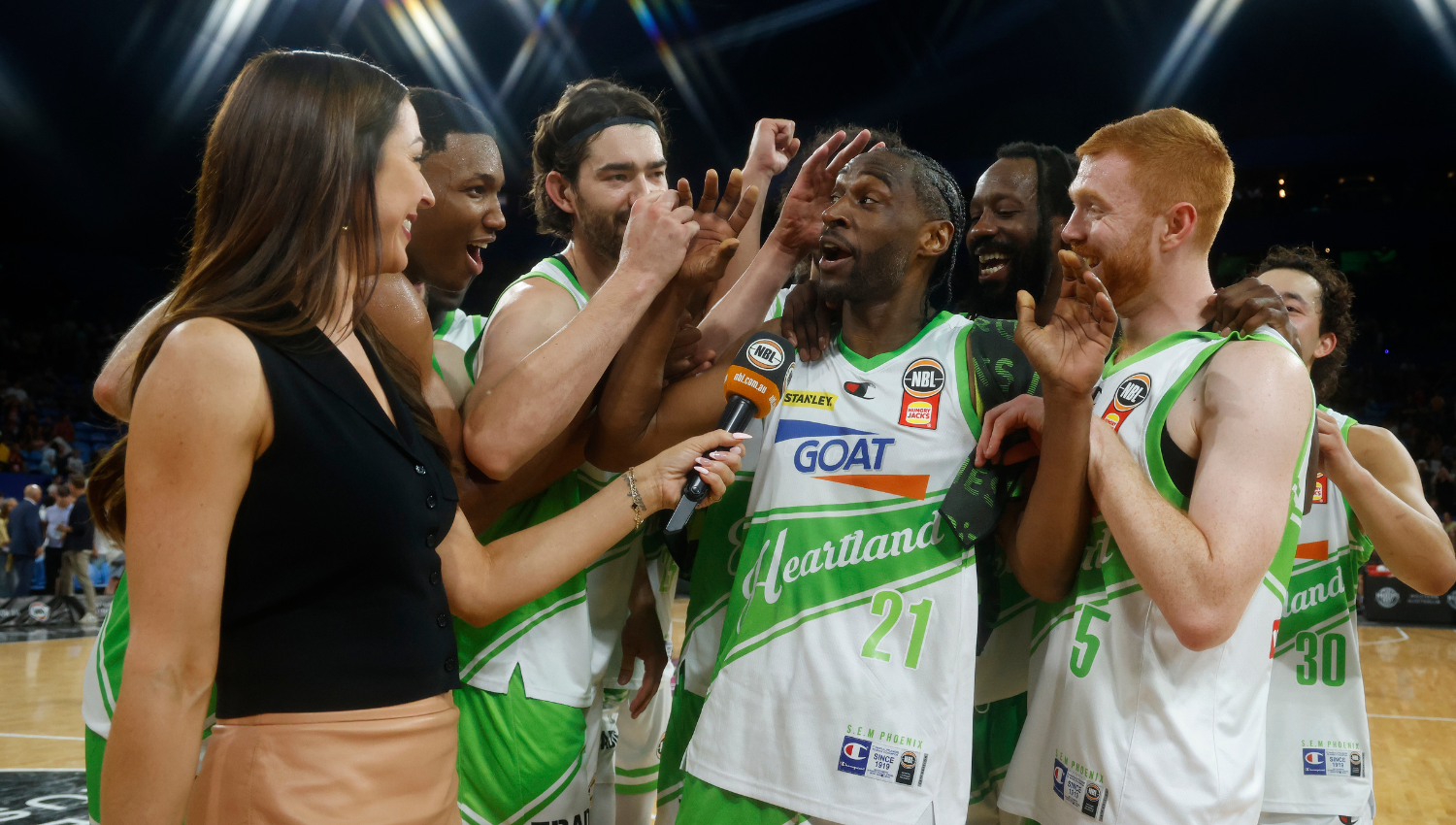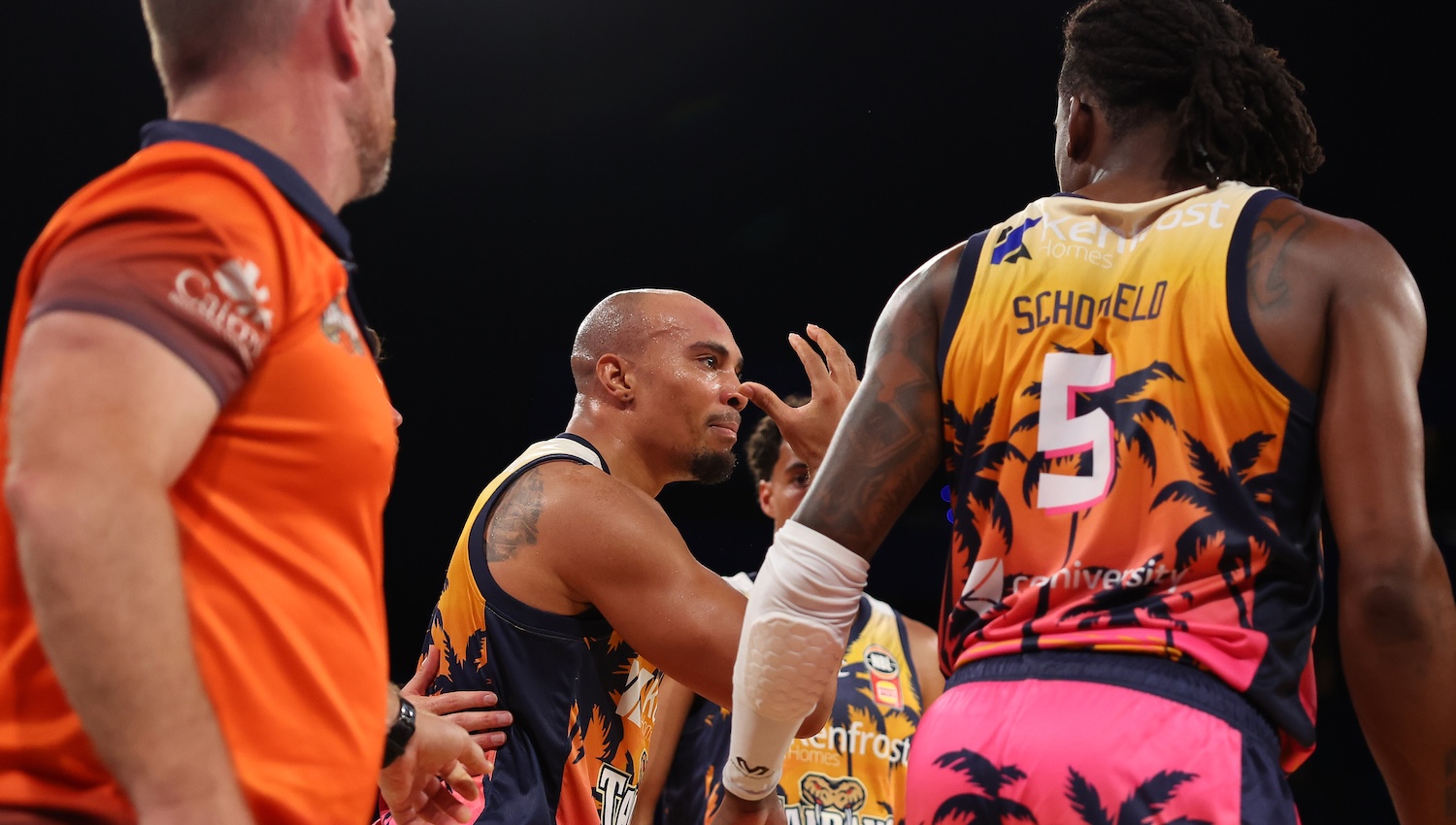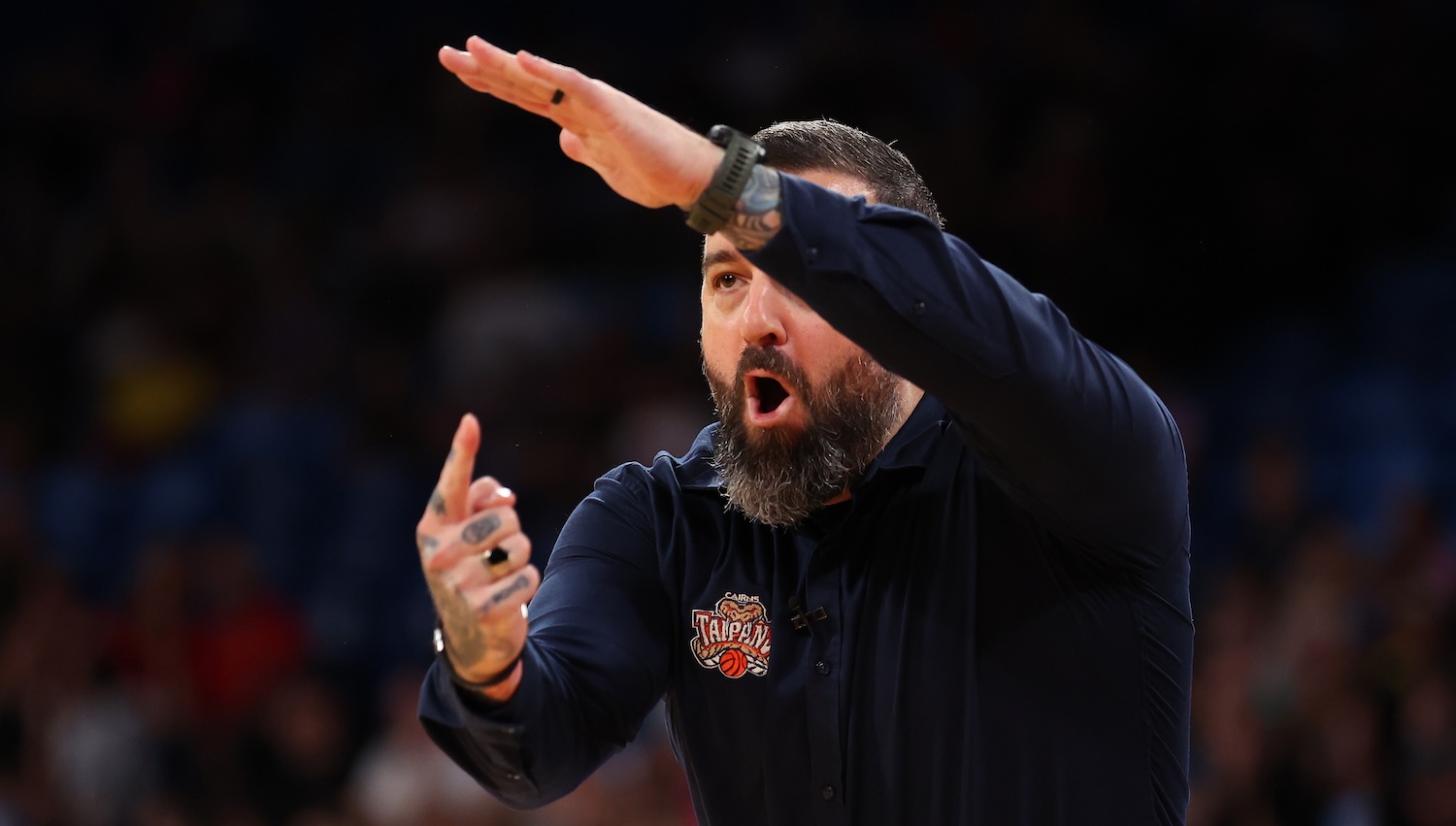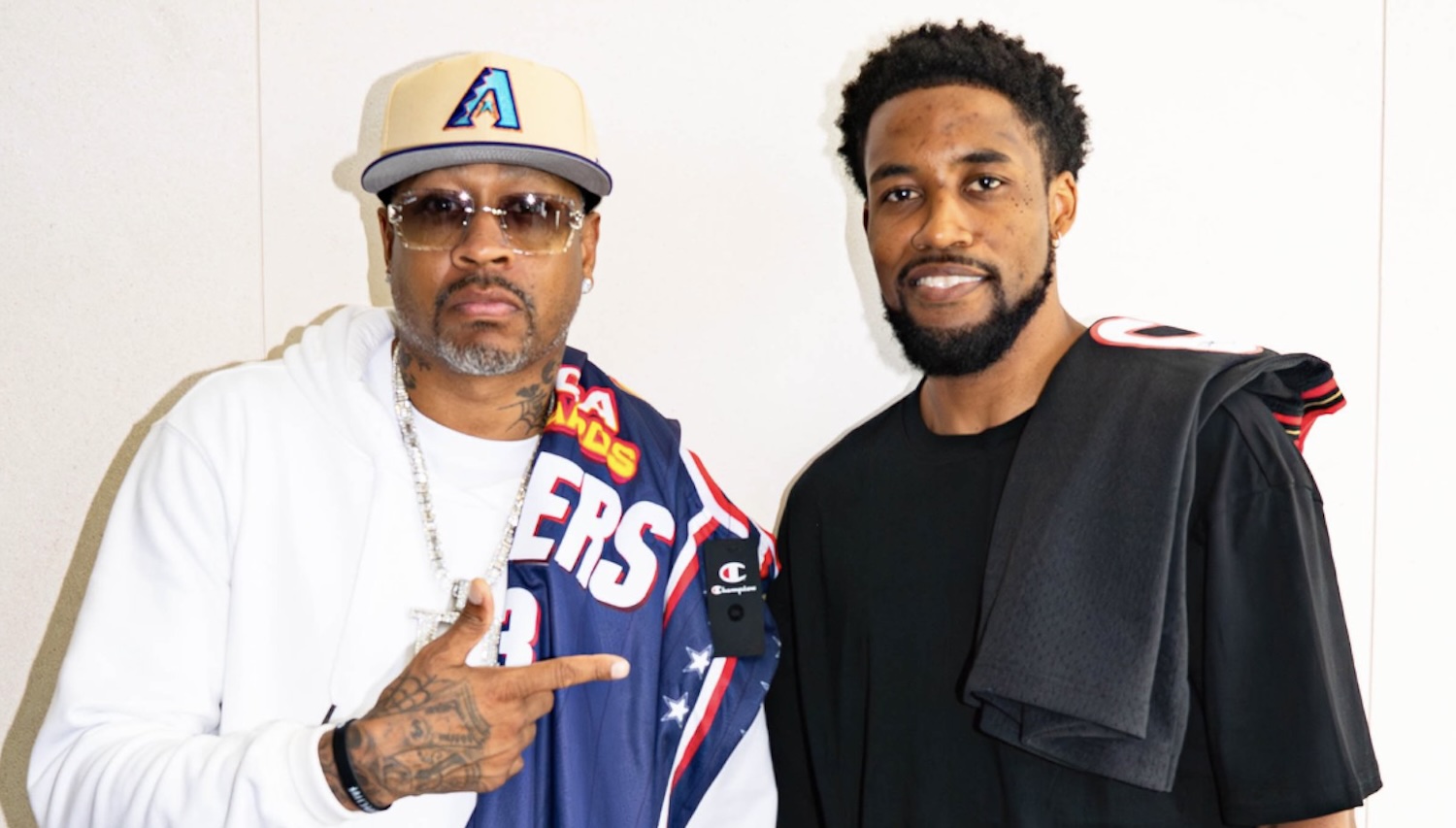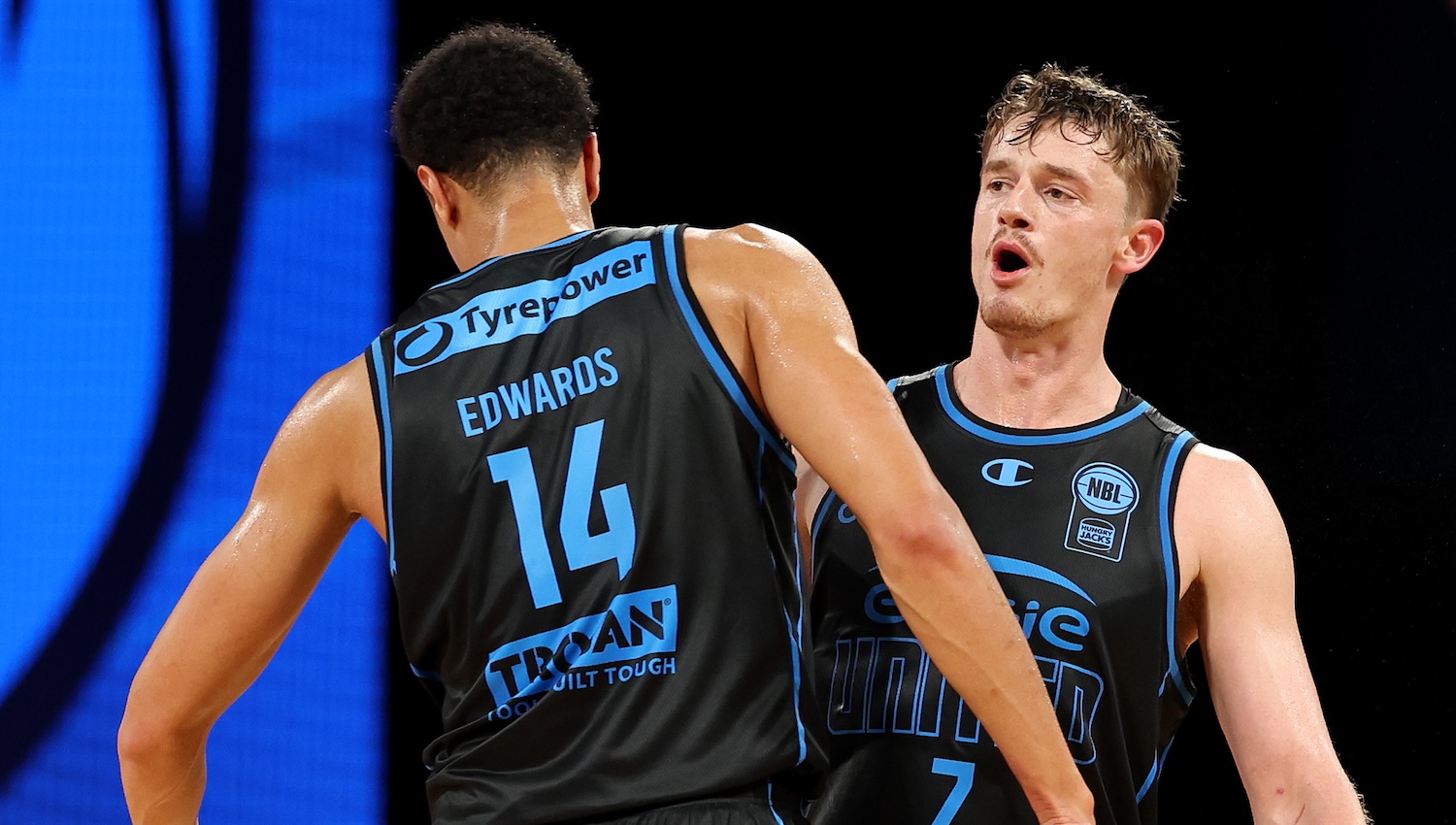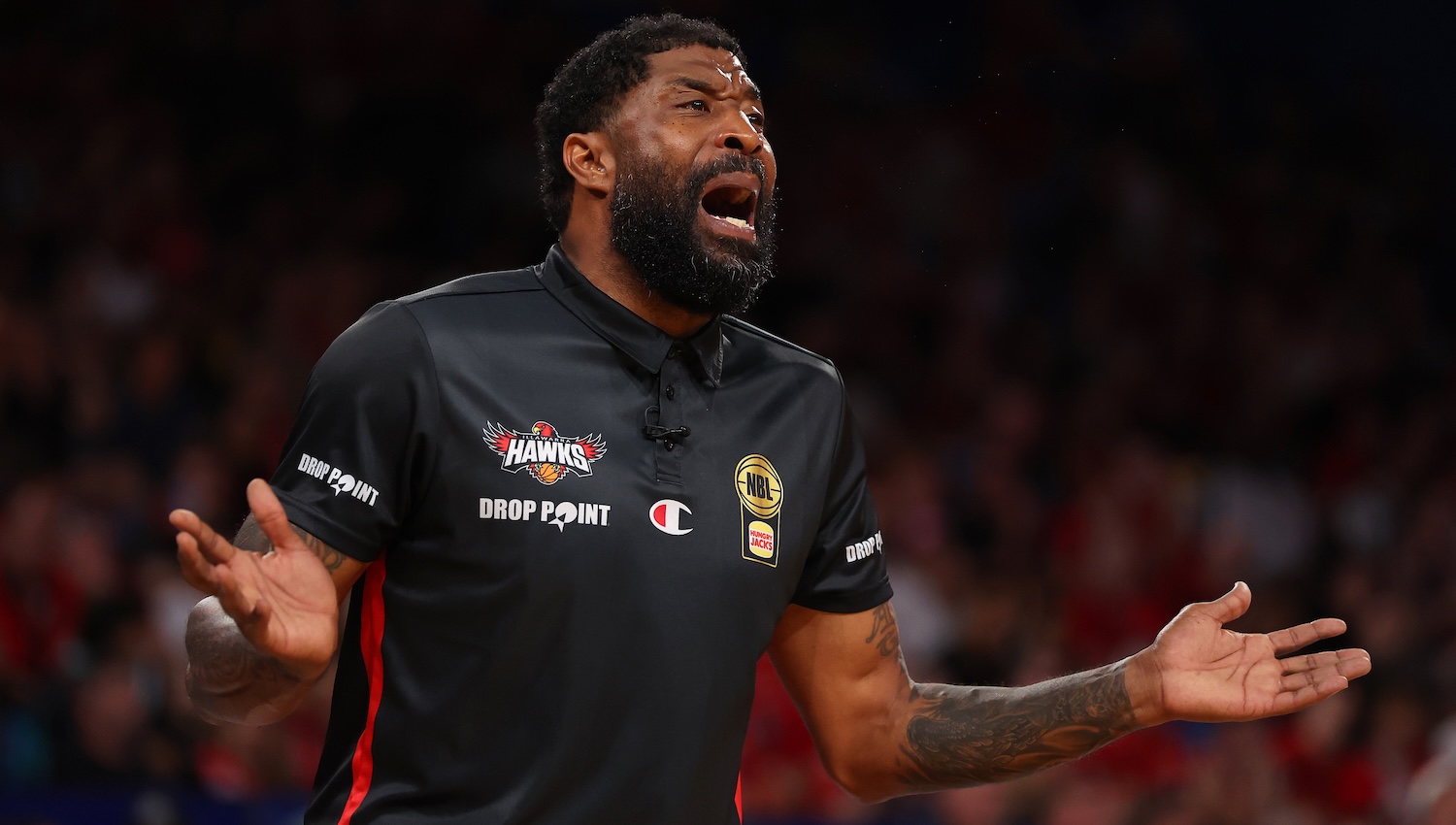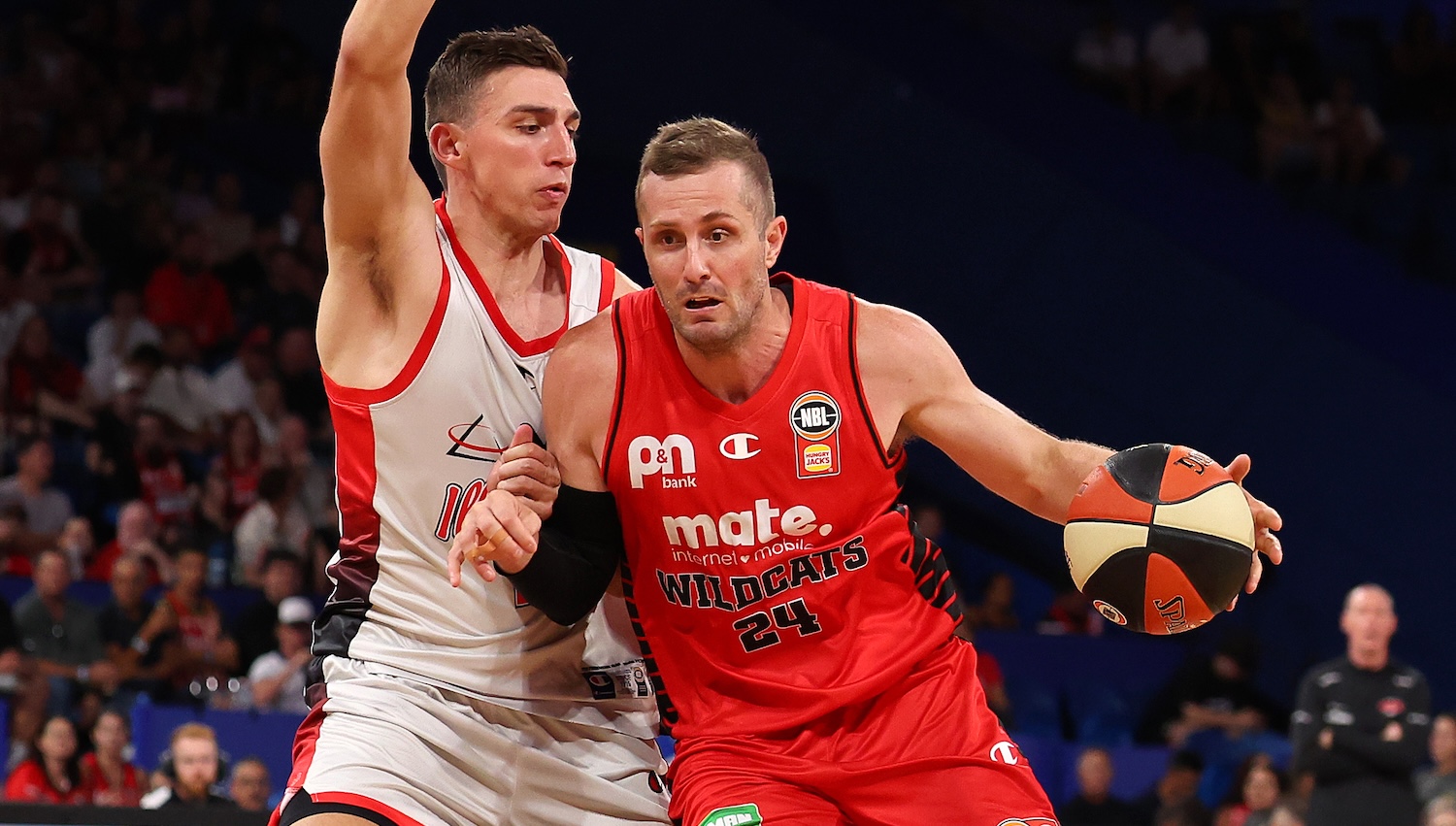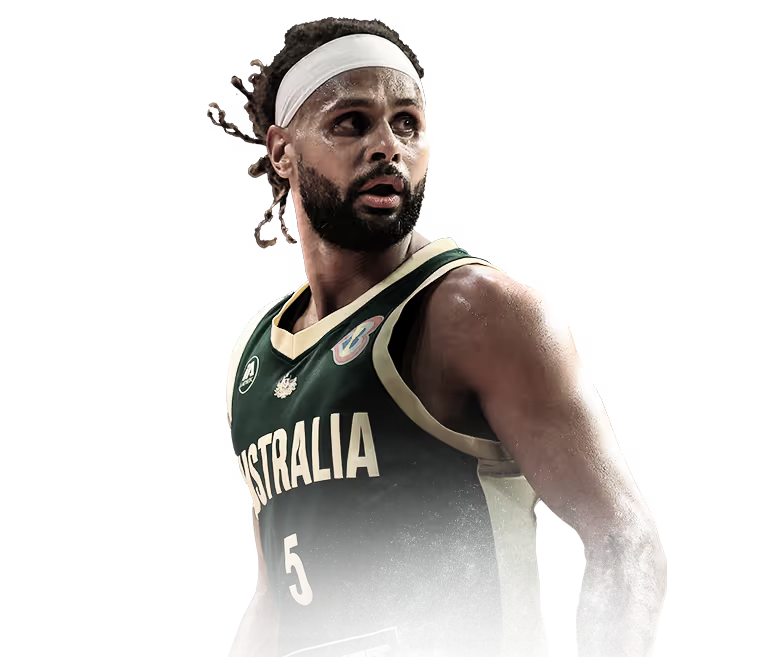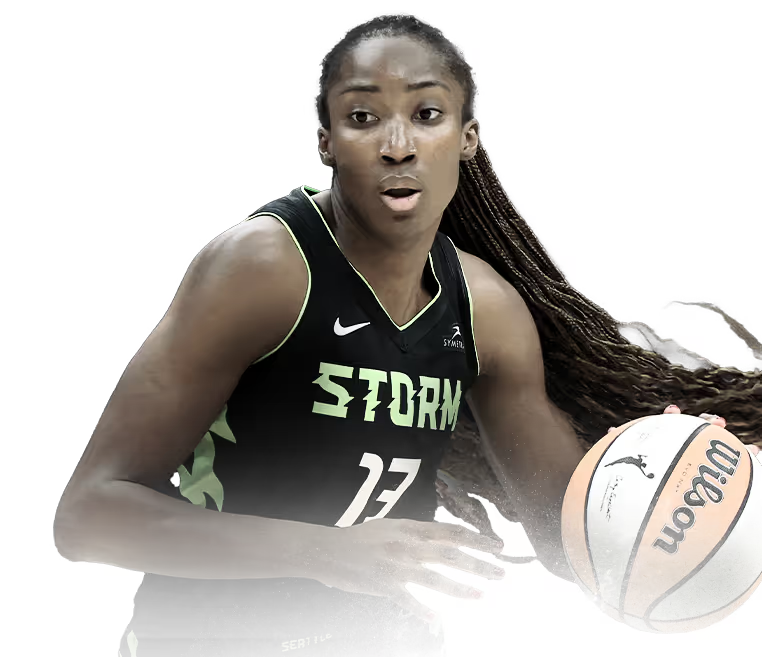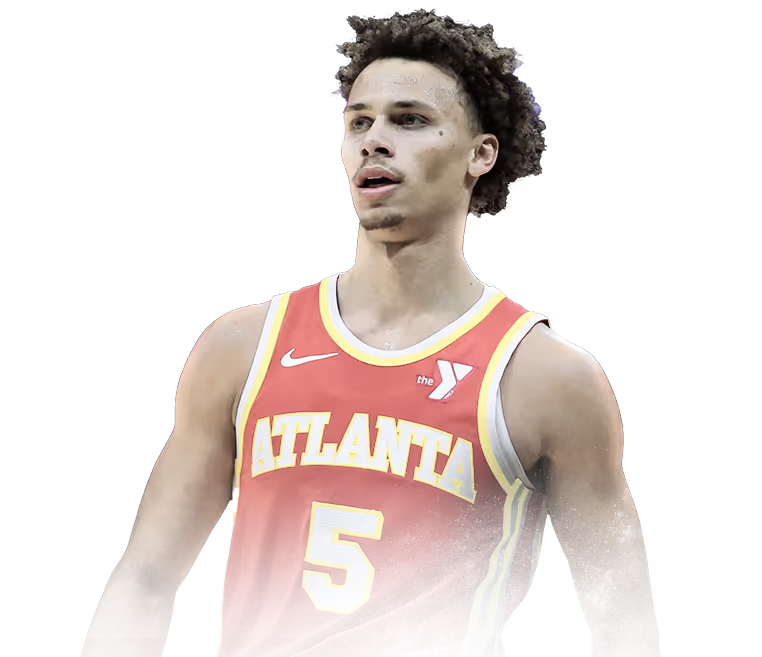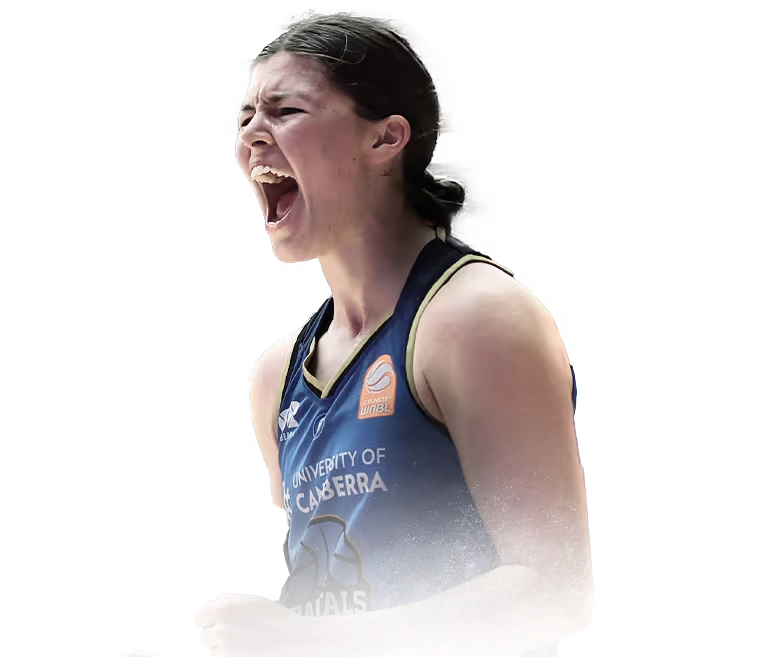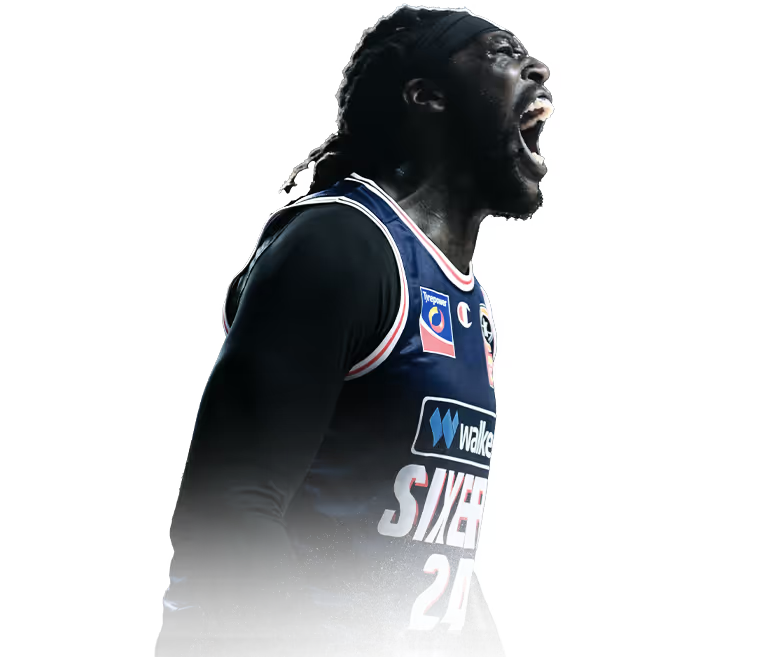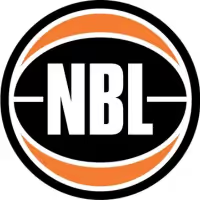

10
Jun
Code Sports
Nate Jawai to say goodbye to basketball
Nate Jawai gears up for a final farewell, Wednesday’s Indigenous Basketball Australia showcase.
- Jawai hails from Bamaga, Cape York, in the tip of Far North Queensland
- The NBL Rookie of the Year opted not to attend the 2008 NBA Draft, instead watching it from a restaurant with his inner circle
- He credits leaving the NBA and playing in Serbia with rejuvenating his career
As he gears up for a final farewell to basketball at the Indigenous Basketball Australia All Stars showcase, the first Indigenous Australian to make it to the NBA Nate Jawai has opened up on his rise from an isolated town in far north Queensland to the big time — and the unique challenges and triumphs he’s faced along the way, reports Code Sports Basketball's Michael Randall.
Watch Wednesday’s Indigenous Basketball Australia All Stars showcase live on basketball.com.au from 6.00pm AEST.
Bamaga To The Big Time
Jawai calls Bamaga, an Indigenous town of around 1100 about 40km from the northern tip of Cape York, home.
So, once he found basketball as a teen, whether it was the AIS, Midland College in Texas or the NBL, the learning, culture and language curve were always steep.
Not that it stopped the shy 209cm, 130kg giant from performing — he won the 2007-08 NBL Rookie of the Year award in his first season in Cairns with veteran-level production of 17.3 points and 9.4 rebounds.
That, along with his marvellous size, put Jawai on the radars of NBA teams and soon he was on the plane to the US for workouts.
“I’ve never been a person that likes the attention and everything happened for me so quickly.
“I didn’t even start playing basketball until I was 17 and then everything just went haywire for me.
“I didn’t have time to grow up, to be honest with you, it was tough.”
At the time, Bamaga was a community of less than 800 people, its inhabitants speaking a variety of languages, including Kalaw Kawaw Ya, Brokan (Torres Strait Creole) and English.
Read the full story at Code Sports Basketball here.
All of a sudden, he’s a Toronto Raptor, in the bright lights of the NBA, in a city of four million people.
“I go over to the states, and it’s a whole different ball game and everything’s just an eye opener,” he said.
“It’s hard to take a kid out of a community like that and I think that’s what I struggled with the most, being away from home and family.
“Family means everything for me, my mom and dad, my cousins, and I’m away, and it’s all foreign to me.
“I didn’t speak English that well, I didn’t know how to use some technology, I didn’t know the culture. I didn’t even know the game very well. It really was a whole different world that I had to try and adjust to.
“You’d have these confident European players that didn’t speak English well but they didn’t care. That wasn’t the same nature as me.
“I was more embarrassed. I wanted to be able to communicate and I didn’t want to be a fool.
“So for me to get out of that comfort zone was daunting.
“But it turned me out to be who I am.”
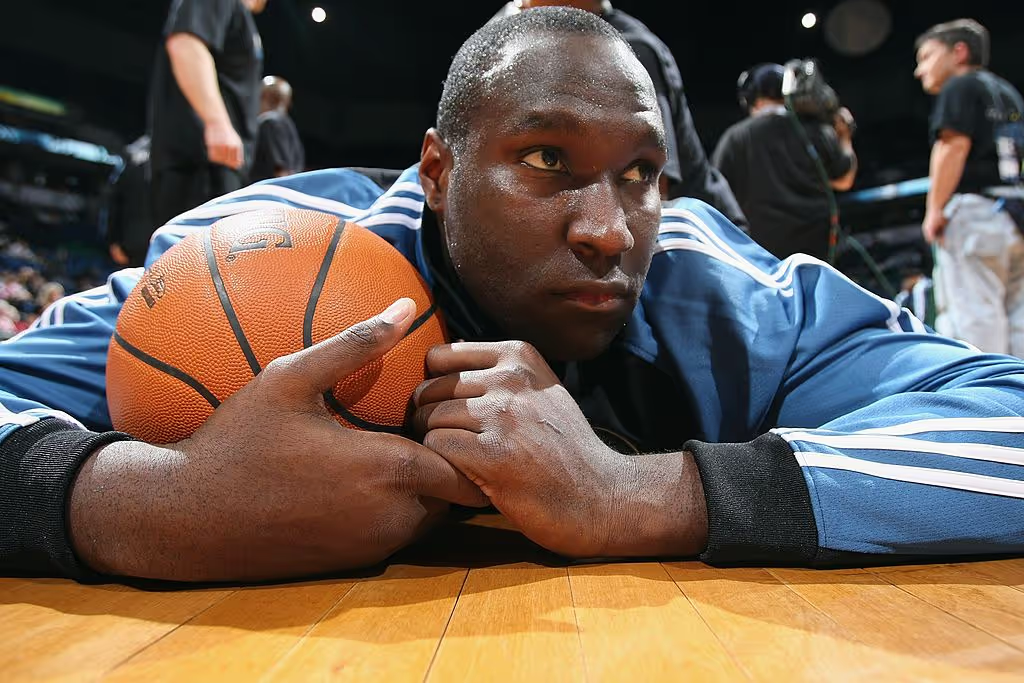
A 'Different Draft Experience'
Up to five Australian young guns could be crossing their fingers and toes their name is heard at June 26’s NBA Draft.
Jawai says his draft night was a unique one.
He was in New York, but refused to attend the draft.
Instead he, agent Daniel Moldovan and then-Cairns assistant coach Aaron Fearne — one of Jawai’s greatest career influences — watched the broadcast from ESPN Zone in New York.
“I remember Daniel was trying to get me in a suit and trying to get me to go to the draft at Madison Square Garden but I was just like, ‘no, I don’t want to go, I’m fine’,” Jawai recalls.
“I’m a community kid and I was 21 years old.”
Watching on the screens as names were called, one-by-one, Moldovan was alerted the Indiana Pacers planned to draft Jawai in the second round.
“He was sitting with four or five phones in front of him and, toward the end of the first round, those phones were going off,” Jawai said.
But Jawai would never hear his name called.
“We were just sitting around the table having dinner and watching the draft and there was a commercial break,” he said.
“When it came back from the break, I saw my name on the screen — I got drafted while they were on an ad break.
“I said to Daniel ‘Oh, I just got drafted, No.41’.
“I don’t think I even reacted. I think I was just more like, ‘oh is my life changed now?’
Jawai took a walk around NYC, went back to his hotel and then called mum and dad.
“I didn’t really like the tension so I was like, ‘yep, happy, I got drafted, let’s go’,” he said.
“It was a bit different but I wouldn’t change it.”
The Health Scare That Nearly Ended His Career
When doctor’s detected the heart that powered Jawai’s massive frame was enlarged and said he had to stop playing basketball while they investigated its cause, he feared the worst.
And he had to face it virtually alone.
“I keep coming back to being from a small town but I was 21-22, didn’t have mum and dad there, I had Daniel and Fearney on the phone a lot, and that’s it.
“I was going to appointments by myself. So many heart scans and MRIs and dye going through your veins.
“I wasn’t allowed to get my heart rate over 100 so I couldn’t even run, let alone play.
“My career just stopped.”
Even if he survived the abnormality, what would it mean for his basketball?
“The doctors said I had to stop everything. I couldn’t play for nearly the whole season,” he said.
“I was new to the game, It was only my fifth or sixth year playing basketball ever.
“I knew I could play but I was raw. I didn’t know the NBA game well and I wasn’t able to do anything, so I couldn’t really learn anything and get better.”
Finally cleared to play, Jawai would make his NBA debut in January 2009 — nearly seven months after he was drafted by the Pacers and traded to the Raptors.
By July, he was experiencing the business side of the NBA when he was sent from Toronto to Dallas — then, in October, the Mavericks shipped him to Minnesota.
“I had to move house and move countries to Dallas and then a couple months later do it all again from Dallas to Minnesota,” he said.
“I’d hardly even trained or played properly yet and I had to keep packing everything up, finding a new place to live, it was tough.”
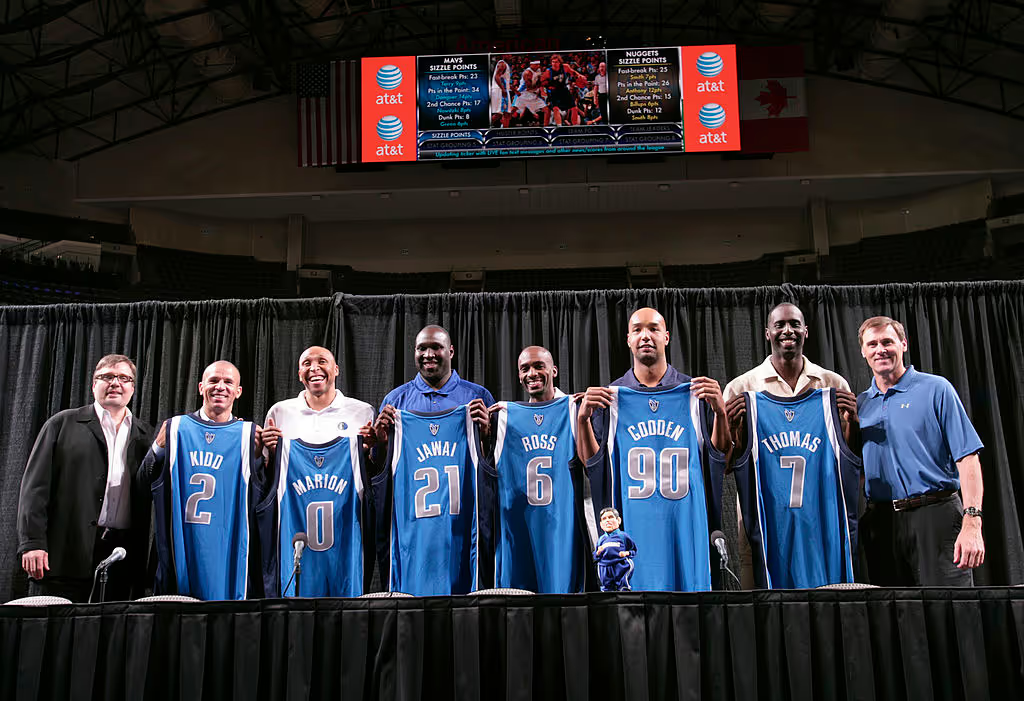
Euro Trip Renewed Spark
Jawai opted to leave the NBA at the end of his two-year deal and found greener pastures in Europe, first with Serbian powerhouse Partizan, then in Russia, Turkey, Andorra, France and, of course, Spain, where spent a season with giant Barcelona.
“Going to Europe was probably one of, if not the best, basketball decision I made,” Jawai, who won MVPs and a swag of titles during his years in Europe, said.
“I just wanted to play.
“I got to Serbia and I started to enjoy my basketball again.
“I’m a cultural person, I’m Torres Strait Islander, Indigenous.
“As soon as I got to Belgrade, with the history in that city, I was like ‘yes, I’m not at home, but I’m kind of at home’.
“I could relate to the culture and soak it up, it was easier for me.”
Tradition Builds For Next Gen
The IBA All Stars, founded by Indigenous NBA star Patty, wife Alyssa and parents Uncle Benny and Aunty Yvonne, now in its second year, has fast become a significant event on the Australian sporting calendar.
The games showcase the finest male and female basketball talent from First Nations backgrounds, many of whom are playing in the NBL and WNBL.
But it’s more than that, Jawai says.
“Pat’s done a great job organising all this for us to have but, If you really think about it, back in the day, it was pretty much just Pat and I in the professional basketball realm,” he said.
“We had (Aussie Indigenous basketball pioneers) Uncle Danny (Morseau) and Michael Ah Matt before us who paved the way, but we know now there are more and more Indigenous kids coming through wanting to play basketball and be involved.
“And so it’s important for people like me and Patty and (former Illawarra Hawk) Tyson Demos who have been through the ups and downs and experienced the racism and the successes to be a support network for all the younger kids coming through.
“We can talk about the negatives and the racism that all of us have been through but this is bigger than that — it’s the connectivity to have all of us together, sharing this game that’s really important to us and share each others’ story and show what people from our community are capable of.
“It’s a family environment, getting back to your culture and your identity, to share who you are and learn about each other.
“I was a shy kid and basketball has opened up so many doors for me because of the connections and it’s kind of the same thing that this game can do for the younger Indigenous players involved.”
Exclusive Newsletter
Aussies in your Inbox: Don't miss a point, assist rebound or steal by Aussies competing overseas. Sign-up now!




